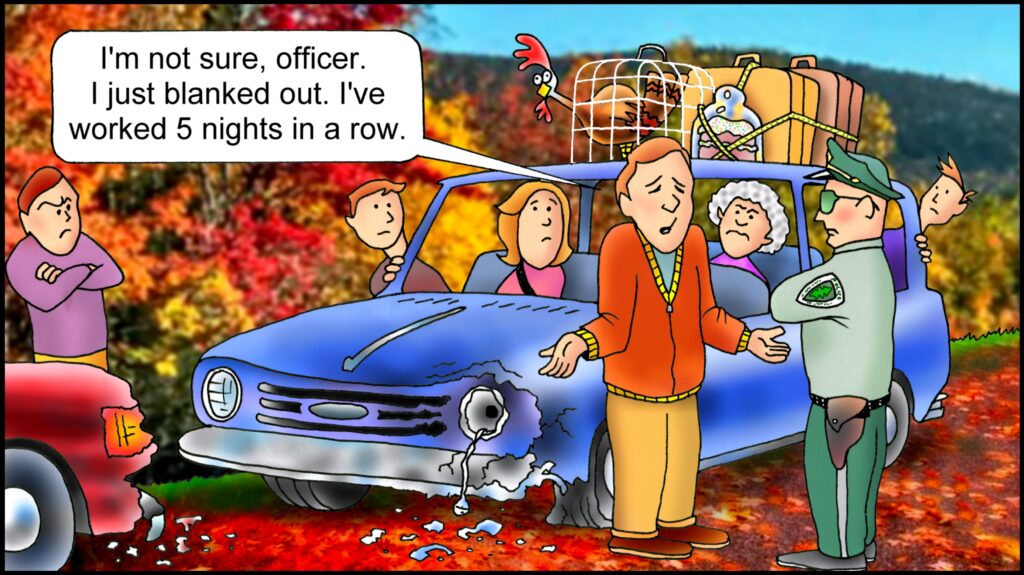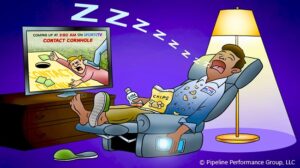Sleepiness and driving are a dangerous combination. According to the National Sleep Foundation, more than 6,400 U.S. deaths are attributed to drowsy driving each year. Crashes that occur due to a sleepy driver are mostly preventable. Drivers who make sleep a priority are rarely to blame for these types of accidents.
The week following the end of Daylight Savings Time in November is Drowsy Driving Prevention Week® (DDPW). The National Sleep Foundation hosts DDPW annually to bring attention to this grave problem in an effort to reduce the number of drivers who choose to drive while sleep deprived. As a society, we operate business around the clock with an emphasis on work. Commute times can be long and in congested traffic, and there’s also the exponential advancement of technology to distract us from sleep.
It can be difficult to determine when fatigue is a contributing factor in an accident. There are no chemical tests that can identify the presence of fatigue in an individual like there are to identify the presence of drugs and alcohol. Dr. Drew Dawson conducted an experiment in 1997 with two control groups that examined human performance when drowsy as compared to human performance when drunk. One group was deprived of sleep for a period of 24 hours and the other group drank until intoxicated, a 0.05% blood alcohol content. Both groups were then administered vigilance and alertness tests. Dr. Dawson found that the groups performed similarly. One may conclude that driving drowsy is very much like driving drunk.
Avoid drowsy driving by following some simple guidelines:
- Make sleep a priority. The only remedy for fatigue is sleep. Sleep specialists urge us to get seven to nine hours of sleep each day, regularly.
- If you’re driving and feeling drowsy, stop in a safe place and nap until you’re feeling alert.
- Be especially careful to get plenty of sleep before making a long road trip. The monotony of driving can contribute to fatigue.
- Avoid alcohol consumption before driving as it contributes to sleepiness, increasing impairment.
- Check medications before driving to see if drowsiness is a known side effect.
- Remember that your circadian rhythm can enhance feelings of fatigue. If you’re sleepy, avoid driving in late afternoon and pre-dawn hours when energy levels are at their lowest.
Drinking water also helps with alertness. Since our brains are made up of mostly water, it makes sense that good hydration is a must if we’re to remain alert. Sleep and water are your simple solutions for safety.
Transporting hazardous materials through the pipeline carries risks, just as transporting your family to your chosen vacation destination. In both instances, it’s paramount that you take care of yourself first with the proper quantity and quality of sleep. Doing so will allow you to manage the transportation experience safely, providing a good outcome for everyone.
MANAGING FATIGUE EDUCATIONAL PROGRAM | Scarlet Knight © 2021 Please Distribute to Others.




